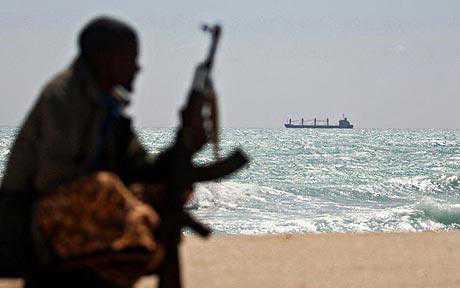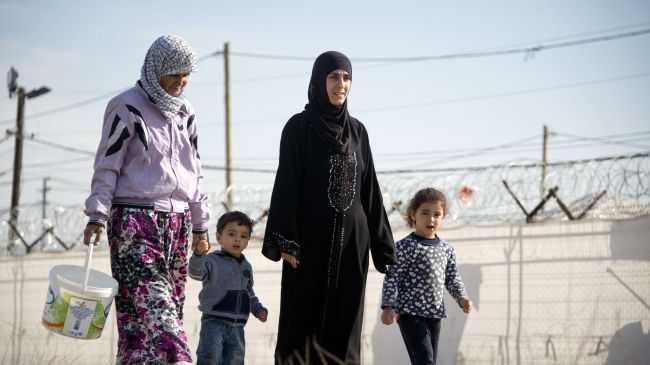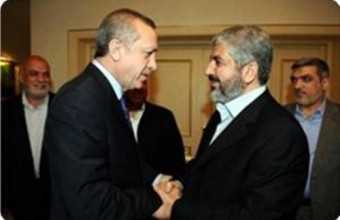On February the 11th 2013, the 700th day of the Syrian uprising, the Cilvegozu crossing near the Turkish town of Reyhanli was rocked with a deadly blast. A parked minibus with Syrian number plates exploded at the busiest border gate between Turkey and Syria, killing 14 people and injuring many others. Turkey’s Interior Minister Muammer Guler said it came from Syria. “The terrorist act was probably carried out by a Syrian but it was too early to apportion blame”.
Turkish media didn’t hesitate to speculate. Most assumed it was the work of the Syrian regime; others suspected the jihadi groups and a few wondered if it could have been an accident involving fighters on their way to Syria. A Syrian National Council opposition delegation due in the area at the time claimed they were the real target. Turkish authorities and the military put out conflicting accounts of the situation.
Whoever was behind it, the attack has raised serious questions about security.
The site of the explosion lies opposite the Syrian border post of Bab al-Hawa. It was captured by the rebels last July. Since then, it has been the main crossing for people and vehicles, controlled by the opposition forces on the Syrian side.
This was not the first time the Syrian conflict cost lives in Turkey. On 22 June 2012, Syria shot down a Turkish jet near the Turkish-Syrian border, killing two pilots. In October 2012, Syrian mortar shells landed inside Turkey. Five people died.
If anyone still doubted the extent of the spillover of the Syrian crisis into Turkey, the Cilvegozu attack should have made it clear.
Yet, Ahmet Davutoglu, the architect of Turkey’s foreign policy, told the national daily Milliyet that the recent attack might have been executed by those wanting to drag Turkey into the Syrian conflict.
The leader of the main opposition Republican People’s Party (CHP), Kemal Kılıçdaroğlu, called on the government to make a “satisfactory” explanation for the bomb attack and asked why their local CHP deputy was not allowed to see the video footage of the bombing. “With your Syria policy, you dragged Turkey into a swamp” he said, adding “If you meddle in another country’s internal affairs, they will come and meddle in yours, too”.
Mr Davutoglu responded angrily. “As if the real culprit is not Assad or the terrorists; they blame the government for opening the borders to refugees. What kind of opposition is this?” he asked.
It is not only the main opposition that has been critical of Turkey allowing free passage and flow of weapons to Syrian opposition. Local people living close to the border have long been complaining about the presence of Syrian and other foreign militants, freely moving in and out of the area.
Turkey denies it has been supplying arms to the Syrian opposition.
Feed with one hand, arm with the other
There are more than 200 thousand Syrian refugees inside Turkey. Authorities do not allow the UNCHR or other international organisations to control these. Syrian civilians fleeing their government’s brutal attacks are well-looked after in Turkish camps. Shelter and support provided to the refugees by the government have not been controversial. Even though the opinion polls indicate that there isn’t any desire for a military confrontation with the Syrian regime, the Turkish public is welcoming and generous towards the Syrian refugees.
According to the Finance Minister Mehmet Simsek, Turkey has already spent more than 600 million dollars. 344 million dollars of that came from the state budget, and the rest from the local authorities. During my recent visit to western Turkey, I came across Syrian families settled in towns far away from the border regions and looked after by local administrations.
So, it is not the humanitarian effort that is attracting criticism. It is the “act now, think later” approach of the government that is causing concern.
Turkey’s foreign policy in recent years has been characterised with a series of miscalculations. Failure to fully assess the possible consequences of its active anti-Assad policy meant that Turkey has been dragged into the conflict in a way that it did not expect.
Syria has proved to be a tough test for the institutional capacity of Turkish bureaucracy. The quality of Turkey’s intelligence and the efficiency of the various agencies sharing and analyzing available information have also come under scrutiny.
The deepening crisis in Syria has exposed the lack of checks and balances in Turkey.
The apparent lack of consultation between the decision makers and the experienced diplomats was one factor for this lack of foresight. Heavily self-censoring media and its failure to lead a healthy public debate on crucial national interest and security issues were the others.
It has not been possible to challenge the Prime Minister Erdogan’s leadership style on foreign policy decision-making. No serious questions were asked when Mr Erdogan promised to go to Damascus in the shortest possible time, if Allah wills to embrace their brothers. “That day is close. We will pray near the grave of Salahaddin Ayyubi and pray in the Umayyad Mosque” Erdogan said in June 2012.
Eight months on, with no sign of Assad being toppled, criticizing the government’s policy is an even more hazardous activity. As for questioning the Syria policy, along with the usual minefields of the Kurds and the religious brotherhoods, this can land a Turkish journalist in trouble.
It is no secret that Syria has become the number one destination for jihadists anywhere in the world and the Turkish public hears this not from its own mass media but from the international broadcasters such as the BBC.
It was only days before the Cilvegozu attack that the BBC’s James Reynoldsshowed a bombmaking factory inside Turkey, with the explosives taken over the border to be used in Syria against pro-Assad targets.
Ghaith Abdul-Ahad’s recent report How to Start a Battalion (in Five Easy Lessons) was another eye opener for many about Turkey’s role in Syria.
Turkey sees the emergence of an autonomous Kurdish region along its Syrian border as the biggest threat to its national security. The civil war in Syria has heightened tensions between Turkey and its ethnic Kurdish population but it also focused the government’s attention on the urgency of a peaceful solution.
So, just as the Erdogan government is leading efforts to negotiate a settlement with its own insurgents, the PKK, another questionable tactic emerges.
There are reliable reports that Turkey has recently been encouraging jihadi fighters to confront the Kurdish militia known as the Kurdish Democratic Union Party, or PYD, in the northern Syrian town of Ras al-Ayn. Ras al-Ayn is just across the border from the Turkish town of Ceylanpinar and the Turkish sources also confirm increasing movement of militants at this crossing.
The escalation of the civil war, the opening of new fronts and turning the already brutal war into an even more savage one will not help anyone.
Time to think again?
Turkey has already alienated some of its traditional allies by allowing itself to become a jihadist congregating point. The perception of Turkey as a key power contributing to the radicalising of the conflict in Syria is growing. For a country that has suffered from long years of violence perpetrated by extremists who found shelter in neighbouring countries, Turkey now needs to be very careful not to be seen to be doing the same.
Turkey has been a significant player in this conflict right from the start. Some of its policies have had long term consequences both for itself and for the region.
Now is the time for Turkey and other powers engaged in the Syrian conflict to come forward and to assist in undoing the harm that has been caused in part by their national or sectarian interests.
The priority for everyone concerned about Syria should be to stop the appalling levels of violence and destruction.
Getting rid of the Assad regime that had embarrassed and ignored Turkey should not be a matter of honour for Ankara. It is up to the Syrians to do that. There are plenty of opposition activists struggling to create a democratic and independent Syria that will not repeat the mistakes of Iraq and Afghanistan. Even though they are grateful for the humanitarian support they received from their neighbour, increasingly, they, too, are getting impatient with Turkey for bringing its proxy-war onto their lands.






